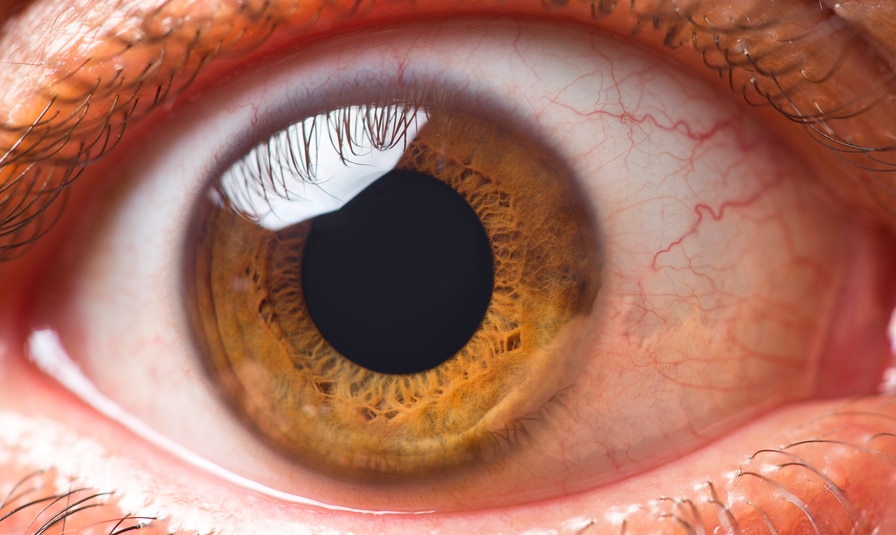
What You Need to Know About Eye Floaters
What Is A Eye Floater?
Floater is the common term for those annoying, erratic specks of debris in your eyes that interfere with your vision. Described in many ways, they are known as spots, strings, webs, clouds, blobs, and shadows to name just a few. The one word agreed upon by everyone who experiences floaters is nuisance. Floaters take many forms and create different degrees of difficulty for those who have them. They earn their name by drifting back and forth, up and down through your field of vision - in other words, floating around.
Exactly what is a floater? It can be an actual tiny piece of the hardened protein in the back of the eye. This protein, usually existing in liquid form, is known as the vitreous humor and is a gel-like substance made up of collagen - the body's natural protein. As you age, the collagen behind the crystalline lens of the eye will grow harder and accumulate. What you see as a floater is a piece, or an accumulation of pieces, darting by. Oddly enough, however, that annoyance can also be an actual shadow cast by the debris. As the pieces move freely in the liquid of your eye, larger chunks can block light, creating a black spot which will disappear as the piece moves on. Floaters may even be experienced as flashes of light.
You may have floaters in just one eye, or you may find them in both. They will be more noticeable to you when you are concentrating on a bright, uninterrupted surface so they may be more obvious when you're looking at a computer screen or the open sky. They dart and squiggle, refusing to be caught in your effort to actually "see" them directly. They move with movement of your eyes, but not in any precise way. Floaters do tend to settle out of the line of sight, but they don't disappear entirely. One method widely used to move them out of the way is to move the eyes, causing the spots to relocate. Unfortunately, one never knows where they'll end up that next moment!
What Causes Eye Floaters?
While most floaters are the result of changes in the eye resulting from age, some are actually part of the formation of the eye before birth and remain contained in the vitreous gel for life. The presence of floaters appears to be more common in people who are extremely nearsighted, those with diabetes, and those who have had cataract surgery. Other non-age-related floaters can result from injuries to the eye. While these nuisances are considered normal and are rarely the cause of serious eye problems, they can be indicators of issues such as retinal holes, tears and detachments.
Should I Worry About My Eye Floaters?
Considered to be a normal condition in most cases, floaters can be dealt with in a variety of ways. Because the brain automatically helps you adjust to them, many people can simply live with floaters. Others who either are of different temperament or sensitivity, and those with larger amounts of floating debris, may want to address them.
Regular eye examinations should be part of your life plan of preventive health. While seeing your eye professional every two years is a general recommendation, there are signs and symptoms which should prompt you to seek an immediate professional evaluation. Among these prompts are a sudden change in the number or noticeable presence of floaters or a rapid deterioration in vision.
Can Eye Floaters Be Treated?
Over-the-counter remedies are available but we wouldn’t recommend going this route as none have been proven to be successful in 3rd party studies. The best treatment would be to schedule a comprehensive eye health exam performed by a specialist in optometry, such as ourselves, and discuss personalized options for your situation. The evaluation includes a thorough check of the vitreous fluid and the retina, using specific instruments that allow the us to examine the health of the inside of the eye. We may use medically approved eye drops to enlarge your pupils, a procedure known as dilation. Through the enhanced ability dilation given by us to see the inside of your eye, better detection of floaters and other problems is possible.
Should floaters become a serious issue for you, available surgical treatments include vitrectomy (in which the surgeon removes the vitreous fluid that is filled with debris and replaces it with a saline solution) and laser removal (a procedure using laser beams to break the floaters into smaller, less noticeable pieces). Our optometrists are able to determine the point at which you should investigate the advisability of such a procedure. While there are procedures and surgeries we would rarely recommend them unless the floaters are so substantial they are impairing the patient's ability to function. This is because the potential risk of the surgeries is typically greater than the benefit you would receive. The symptoms of floaters are very similar to a retinal detachment so if new symptoms occur it should be examined immediately to rule out more dangerous pathology.
With our guidance and personal knowledge of your eyes' health, there are no better professionals to advise you on eye floaters. Schedule a comprehensive eye exam with us today.